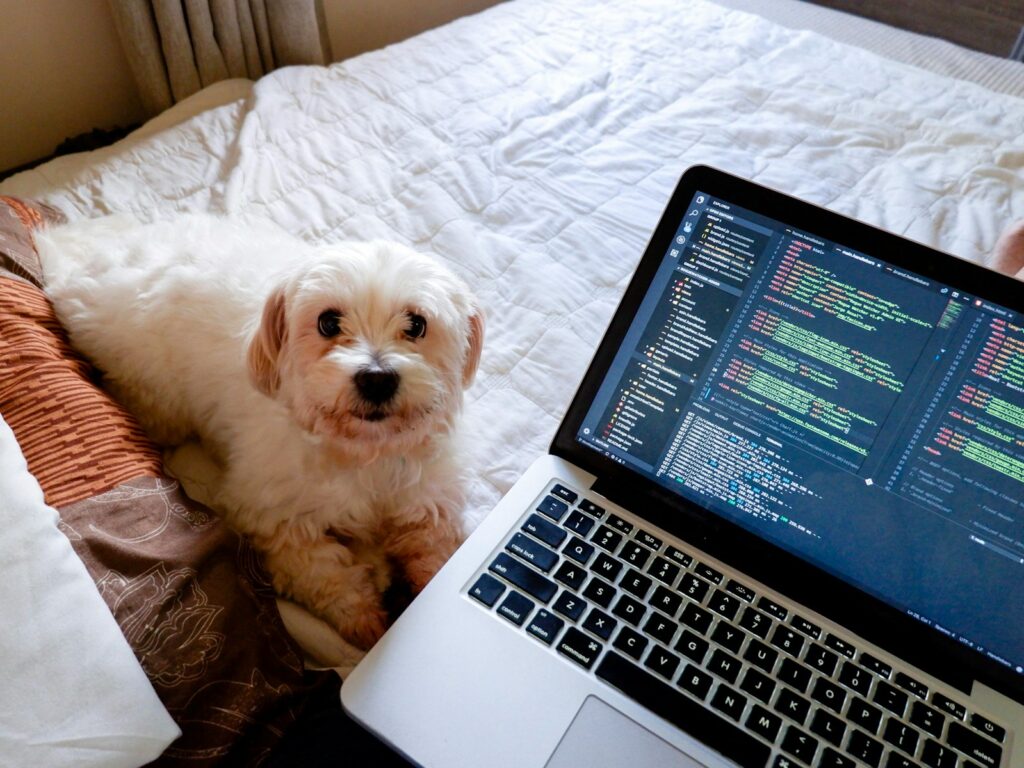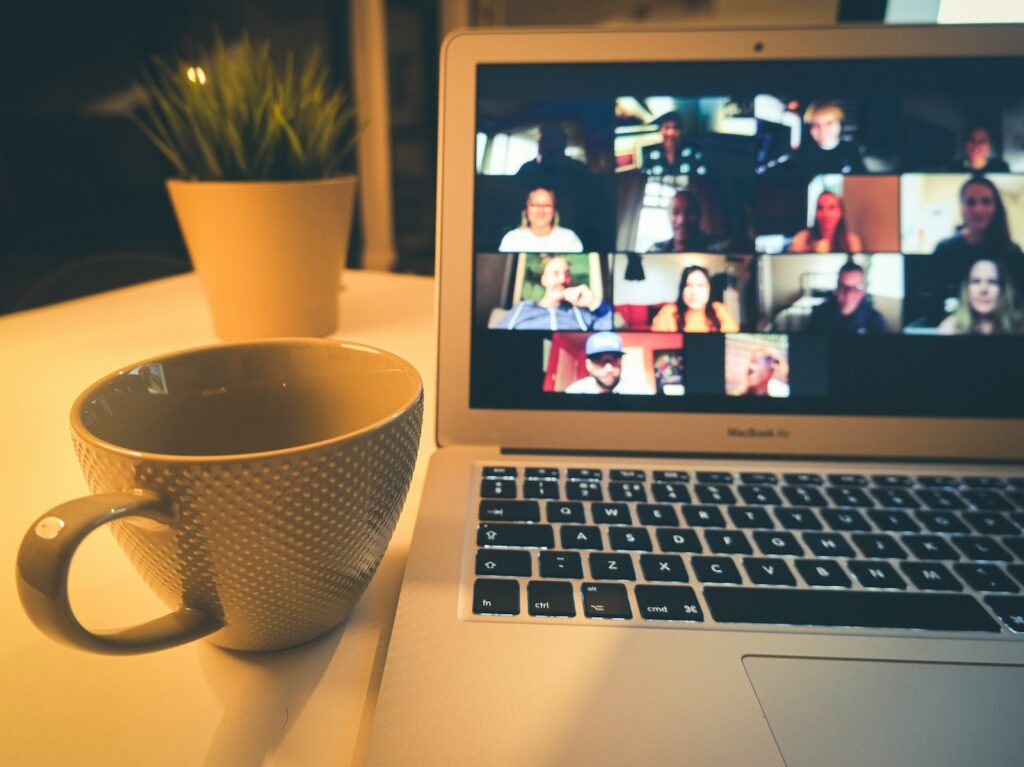Key Takeaways
- Prioritize Boundaries & Routine: Establish clear start/end times, dedicated workspaces, and non-negotiable breaks to prevent burnout and maintain a healthy work-life separation crucial for
remote marketer mental health. - Combat Isolation Actively: Proactively seek out virtual and real-world connections, nurture personal relationships, and engage with professional communities to effectively manage
coping with remote work isolation. - Master Stress & Digital Demands: Implement strategies for
remote work stress managementby taming notifications, setting realistic expectations, and practicing mindfulness to navigate the intense pace of digital marketing. - Invest in Holistic Well-being: Treat physical health (sleep, nutrition, exercise) as foundational to
mental health for remote workers, integrate self-compassion, and leverage technology mindfully to support overallmental wellness for digital marketers. - Build a Robust Support System: Don’t hesitate to seek professional help, engage with peer networks, and foster open communication within your team and with management as part of your comprehensive
marketer's mental health guide.
The hum of the espresso machine, the gentle clatter of keyboards, the spontaneous hallway chats – these were once the ambient sounds of a bustling marketing office. Now, for many of us, the backdrop is the quiet solitude of a home office, a bustling coffee shop, or perhaps the rhythmic whir of a washing machine. The shift to remote work has offered unparalleled flexibility, geographical freedom, and a new paradigm for how we approach our careers. For remote marketers, this shift has been particularly pronounced, marrying the dynamic, often high-pressure world of digital campaigns with the unique challenges of working in isolation.
While the benefits are undeniable, the flip side is a silent, often insidious battle for remote marketer mental health. The lines between work and life blur, the constant digital connection can lead to overload, and the absence of incidental social interaction can foster profound loneliness. This isn’t just about feeling a bit down; it’s about the very real risk of burnout, chronic stress, anxiety, and depression that can cripple productivity, creativity, and overall well-being.
This extensive guide isn’t just a list of tips; it’s a comprehensive survival kit designed for the remote marketer navigating the modern professional landscape. We’ll delve deep into the specific challenges you face, offering practical strategies, mindset shifts, and resources to not just survive, but thrive, ensuring your marketing and mental well-being are not just protected, but prioritized. Welcome to your ultimate marketer's mental health guide.
The Unique Landscape of Remote Marketing & Mental Well-being
Remote work isn’t universally detrimental to mental health, but for marketers, specific aspects amplify the challenges. Our roles are often data-driven, client-facing, and demand constant innovation, all while requiring seamless collaboration with dispersed teams.
The Always-On Culture and Digital Overload
Marketers are inherently connected. Social media channels, ad platforms, analytics dashboards, communication tools (Slack, Teams, Zoom) – the digital ecosystem is our playground. Remotely, this translates into an “always-on” expectation.
- Boundary Erosion: Without a physical office to “leave,” the workday can stretch indefinitely. Emails arrive at all hours, urgent requests pop up on messaging apps, and the temptation to just “check one more thing” becomes irresistible.
- Notification Fatigue: Constant pings, alerts, and updates create a perpetual state of readiness, making deep focus difficult and contributing to cognitive overload. This relentless barrage is a major contributor to
remote work stress managementchallenges. - FOMO (Fear of Missing Out): Especially in a fast-paced industry like marketing, there’s a pressure to stay updated, to be available, and to not miss a crucial client message or team decision.
The Silent Struggles: Isolation, Imposter Syndrome, and Decision Fatigue
While the digital noise is loud, the silence of working alone can be deafening. Coping with remote work isolation is one of the most significant hurdles.
- Lack of Spontaneous Interaction: Gone are the watercooler chats, the quick desk drive-bys, and the casual team lunches that provide social connection and informal problem-solving. This absence can lead to feelings of loneliness and detachment.
- Imposter Syndrome: In a remote setting, where feedback might be less frequent or more formal, it’s easier to second-guess oneself. The lack of visible cues from peers can amplify feelings of inadequacy, making marketers question their skills even when achieving great results.
- Decision Fatigue: Marketers make countless decisions daily – from campaign optimizations to content strategies, budget allocations, and creative direction. Remotely, these decisions often fall solely on individuals, without the immediate bouncing of ideas or shared responsibility, leading to mental exhaustion.
- The Weight of Data: Our success is often measured in tangible metrics: conversions, clicks, ROI. While this is the nature of the beast, the constant pressure of performance data, especially when working in isolation, can become a significant source of anxiety and contribute to the decline of
marketing and mental well-being.
Why Marketing and Mental Well-being Are Intrinsically Linked
Our profession demands creativity, strategic thinking, problem-solving under pressure, and adaptability. These are high-cognitive functions that require a healthy, well-rested mind. When mental health for remote workers suffers, so does the quality of their work. Burnout isn’t just feeling tired; it’s a state of emotional, physical, and mental exhaustion caused by prolonged or excessive stress. For a remote marketer, burnout can manifest as:
- Lack of creativity
- Reduced motivation
- Increased errors
- Cynicism or detachment from work
- Physical symptoms like headaches or digestive issues
Understanding these unique challenges is the first step. The next is to equip ourselves with the tools and strategies to mitigate them.
Building a Resilient Routine: Foundations for Mental Wellness
Your daily routine is the bedrock of your remote marketer mental health. Without the natural boundaries of an office, you must consciously create them.
Structuring Your Day for Success & Sanity
A structured day isn’t about rigidity; it’s about creating predictable rhythms that protect your energy and focus.
- Define Clear Start & End Times: Treat your remote workday like a traditional one. Set an alarm, “commute” (even if it’s just a walk around the block), and clearly signal the end of your workday. This helps your brain switch between “work mode” and “life mode.”
- Time Blocking: Allocate specific blocks for deep work, meetings, communication, and breaks. Use tools like Google Calendar or dedicated time-blocking apps. This prevents constant context-switching, a notorious productivity killer.
- Non-Negotiable Breaks:
- Micro-breaks: 5-10 minutes every hour to stretch, grab water, or look away from the screen.
- Lunch break: A full 30-60 minutes away from your desk. Ideally, step outside.
- Mid-afternoon reset: A 15-20 minute power nap or mindfulness exercise can recharge your batteries and improve afternoon focus.
- Digital Detox Periods: Schedule time away from all screens, especially before bed. This significantly improves sleep quality.
Table: Structuring Your Day – Before & After
| Aspect | Before (Unstructured Remote Work) | After (Structured Remote Work) | Impact on Mental Health |
|---|---|---|---|
| Work Hours | Bleeds into evenings and weekends; no clear end. | Defined start/end; weekends are work-free. | Reduces burnout, improves marketing and mental well-being. |
| Breaks | Skipped or taken at desk while working. | Scheduled, intentional breaks away from the screen. | Boosts focus, prevents eye strain, lowers remote work stress. |
| Communication | Constant pings, immediate response expected. | Batched checks, specific response windows. | Reduces distraction, fosters deep work. |
| Deep Work | Constantly interrupted by notifications/multitasking. | Dedicated, uninterrupted time blocks. | Enhances productivity, reduces decision fatigue. |
| Transition | None; straight from bed to laptop. | Morning routine (walk, coffee, exercise); evening wind-down ritual. | Signals start/end of work, better sleep. |
Crafting a Dedicated Workspace
Your physical environment profoundly impacts your mental state. A dedicated workspace creates a psychological boundary between your professional and personal life.
- Separate Space: Even if it’s a corner of a room, make it distinct. Avoid working from your bed or couch if possible.
- Ergonomics: Invest in a comfortable chair, a monitor at eye level, and a proper keyboard/mouse. Poor posture contributes to physical discomfort, which in turn impacts mental energy.
- Lighting: Natural light is ideal. If not possible, use warm, adjustable artificial light to reduce eye strain and improve mood.
- Declutter: A tidy workspace can lead to a tidier mind. Minimize distractions and organize your tools.
The Power of Physical Well-being
It’s often overlooked, but physical health is inextricably linked to mental health for remote workers.
- Exercise: Even 20-30 minutes of moderate activity daily can significantly reduce stress and boost mood. Take advantage of your remote flexibility for a lunchtime run, a mid-day yoga session, or a brisk walk.
- Nutrition & Hydration: Fuel your brain with nutrient-dense foods. Avoid excessive caffeine and sugary snacks that lead to energy crashes. Stay hydrated – dehydration can cause fatigue and poor concentration.
- Sleep Hygiene: Quality sleep is non-negotiable.
- Stick to a consistent sleep schedule, even on weekends.
- Create a relaxing bedtime routine.
- Ensure your bedroom is dark, quiet, and cool.
- Avoid screens at least an hour before bed.
Blockquote:
“Sleep is the golden chain that ties health and our bodies together.” – Thomas Dekker. Prioritizing sleep is perhaps the single most impactful step you can take for your
remote marketer mental health.
Navigating the Digital Demands: Remote Work Stress Management
The digital world is our oyster, but it can also be our cage. Learning to manage its demands is crucial for a thriving remote marketer mental health.
Taming the Notification Beast
Notifications are designed to grab your attention, pulling you away from focused work.
- Batch Communications: Designate specific times to check emails and messaging apps (e.g., 9 am, 1 pm, 4 pm). Close these applications outside of these windows.
- Disable Unnecessary Notifications: Most tools allow granular control over notifications. Turn off all non-essential alerts on your computer and phone.
- Set Communication Expectations: Inform your team and clients of your communication schedule. “I check emails twice daily at 9 am and 1 pm. For urgent matters, please call/text this number.” This empowers you and sets clear boundaries.
- Utilize “Do Not Disturb” Modes: Use your operating system’s or messaging app’s DND feature during deep work blocks.
Conquering Information Overload & Decision Fatigue
Marketers are swimming in data, trends, and content. This can be overwhelming.
- Prioritization Frameworks:
- Eisenhower Matrix: Categorize tasks by urgency and importance (Do, Decide, Delegate, Delete).
- Pomodoro Technique: Work in focused 25-minute sprints followed by short breaks.
- The “One Big Thing” (OBT): Identify the most crucial task for the day and tackle it first.
- Mindfulness Techniques for Focus: Short meditation breaks (5-10 minutes) can improve concentration and reduce mental clutter. Apps like Headspace or Calm offer guided sessions.
- Leverage Project Management Tools: Tools like Asana, Trello, or Monday.com can help visualize tasks, assign owners, and track progress, reducing mental load.
[For an in-depth look at enhancing your productivity, check out our guide to effective project management for remote teams](/blog/remote-team-project-management).
Dealing with Client & Team Pressures Remotely
The pressure to perform is magnified when you’re not physically present. Effective remote work stress management in this context is key.
- Setting Clear Boundaries with Clients:
- Availability: Define your working hours and stick to them. Communicate this proactively.
- Response Times: Set realistic expectations for how quickly you’ll respond.
- Scope Management: Be clear about project scope and deliverables to prevent scope creep, which can be a major stressor.
- Effective Remote Team Communication:
- Asynchronous First: Try to communicate via written messages (Slack, email) as much as possible, allowing team members to respond when they’re able, rather than demanding immediate synchronous meetings.
- Structured Meetings: Ensure all meetings have a clear agenda, stick to time limits, and have defined action items. Not every discussion needs a video call.
- Regular Check-ins: Schedule brief, informal check-ins with your manager and team members to maintain connection and address potential issues before they escalate.
- Learn to Delegate & Collaborate: Don’t try to do everything yourself. Trust your team, delegate tasks when appropriate, and leverage collaborative tools to share the load.
Blockquote:
“The key is not to prioritize what’s on your schedule, but to schedule your priorities.” – Stephen Covey. This is especially true for
remote marketersdrowning in digital tasks.
The Social Side: Coping with Remote Work Isolation
While remote work offers flexibility, the lack of spontaneous human interaction is a major challenge for mental health for remote workers. Effectively coping with remote work isolation requires proactive effort.
Proactive Connection Strategies
Don’t wait for connection to happen; make it happen.
- Virtual Coffee Breaks & Team Lunches: Schedule informal video calls with colleagues that are purely social. Talk about non-work topics.
- Dedicated Team Building: Suggest virtual happy hours, online game nights, or even remote challenges (e.g., a steps challenge) to foster camaraderie.
- Community Involvement:
- Professional Networking: Join online marketing communities, attend virtual conferences, or participate in industry forums. Connecting with peers who understand your challenges can be incredibly validating.
- Local Co-working Spaces: If your budget allows, occasionally working from a co-working space can provide the human interaction you miss, without sacrificing remote flexibility.
- Volunteer Work: Engaging in local volunteer activities provides a sense of purpose and social interaction outside of work.
Nurturing Your Personal Life
Your personal connections are a vital buffer against work-related stress and isolation.
- Schedule Non-Work Activities: Just as you time-block for work, schedule time for friends, family, hobbies, and personal appointments. Treat these as non-negotiable.
- Maintain Friendships & Family Ties: Proactively reach out to loved ones. Schedule regular video calls, phone calls, or in-person meetups. Don’t let your personal relationships wither.
- Develop Hobbies Outside of Screens: Find activities that get you away from your computer – gardening, cooking, reading, learning an instrument, sports. This provides a mental break and a sense of accomplishment outside of work.
Recognizing the Signs of Isolation & Burnout
Being aware of the symptoms is the first step to addressing them.
Signs of Isolation:
- Feeling detached from your team or company.
- A pervasive sense of loneliness, even when connected digitally.
- Reluctance to participate in social interactions (even virtual ones).
- Increased irritability or sadness.
Signs of Burnout (often exacerbated by isolation):
- Emotional Exhaustion: Feeling drained, cynical, or detached from your work.
- Depersonalization: Developing a negative or unfeeling response to clients or colleagues.
- Reduced Personal Accomplishment: Feeling a sense of ineffectiveness and lack of achievement.
- Physical Symptoms: Chronic fatigue, frequent headaches, digestive problems, trouble sleeping.
When to Seek Help: If these feelings persist or worsen, it’s crucial to reach out. Don’t suffer in silence. Your marketer's mental health guide should always include professional help as a viable and valuable option. [For a deeper dive into the subtle and overt signs of burnout in marketing roles, read our article here](/blog/understanding-marketing-burnout).
Blockquote:
“Loneliness does not come from having no people around you, but from being unable to communicate the things that matter to you.” – Carl Jung. Find your tribe, whether virtually or in person.
Mindset Mastery: The Marketer’s Mental Health Guide
Beyond routines and connections, your internal dialogue and approach to work significantly impact your mental wellness for digital marketers.
Practicing Self-Compassion & Battling Imposter Syndrome
The marketing world is fast-paced and competitive. It’s easy to be hard on yourself.
- Acknowledge Your Efforts, Not Just Results: Celebrate the process, not just the outcome. Marketing often involves experimentation and iteration. Not every campaign will be a home run, and that’s okay.
- Positive Self-Talk: Challenge negative self-criticism. Replace “I’m not good enough” with “I’m learning and growing.”
- Keep a “Wins” Journal: Regularly jot down your accomplishments, big or small. This provides tangible evidence of your capabilities, especially when imposter syndrome creeps in.
- Seek Feedback: Proactively ask for constructive feedback from trusted colleagues or mentors. This helps ground your perceptions and address any actual skill gaps (which are normal) rather than imagined ones.
- Understand Imposter Syndrome is Common: Many highly successful people experience it. You are not alone.
Embracing Flexibility & Adaptability
The only constant in marketing is change. This applies to remote work as well.
- Lean into Flexibility: One of the perks of remote work is flexibility. If you’re more productive early in the morning, schedule your deep work then. If you need a mid-day break for an appointment, take it and adjust your schedule.
- Accept Imperfection: Not every day will be perfectly structured or productive. There will be distractions, unexpected challenges, and off-days. Be kind to yourself and pivot when needed.
- Continuous Learning: The marketing landscape evolves constantly. Embrace learning new tools, strategies, and platforms. This keeps your mind engaged and reduces the fear of being left behind.
Setting Realistic Expectations & Learning to Say No
Overcommitment is a direct path to burnout, especially for remote marketers who feel the need to prove their value.
- Be Realistic About Workload: Before committing to new projects, assess your current capacity. It’s better to under-promise and over-deliver than to constantly be stressed by an impossible workload.
- The Power of “No”: Learning to politely decline non-essential tasks or projects is a superpower. Frame it constructively: “I’d love to help, but my current focus is on [Project X] to ensure we hit our deadline. I can assist after [Date/Completion].”
- Communicate Capacity: If you’re feeling overwhelmed, communicate this to your manager. A good manager would rather know and help you prioritize than have you silently struggle and burn out. This proactive approach is a cornerstone of any
marketer's mental health guide.
Leveraging Technology Responsibly for Mental Wellness
Technology is central to a remote marketer's existence. It can be a tool for productivity and connection, or a source of immense stress. The key is mindful utilization.
Tools for Productivity and Focus (Use Wisely)
These tools are designed to help, but they can also become another source of distraction if not managed.
- Project Management Software (Asana, Trello, ClickUp): Excellent for organizing tasks, setting deadlines, and collaborating with teams. They reduce mental clutter by giving you a clear overview of what needs to be done.
- Focus Apps (Forest, Freedom, Cold Turkey): Block distracting websites and apps during designated work periods. Forest even plants a real tree for every successfully completed focus session.
- Communication Platforms (Slack, Microsoft Teams): While essential, set boundaries. Utilize ‘status’ features (e.g., ‘Do Not Disturb,’ ‘In a Meeting’) and minimize channels you follow.
- Note-Taking Apps (Evernote, Notion, Roam Research): Capture ideas, meeting notes, and research without relying on your memory, reducing cognitive load.
Blockquote:
“Technology, like fire, can be a good servant and a bad master.” – Freeman Dyson. For
remote marketers, mastering technology for well-being is an essential skill.
Digital Well-being Apps & Resources
Many apps are specifically designed to support mental wellness for digital marketers.
- Meditation & Mindfulness Apps (Calm, Headspace, Insight Timer): Offer guided meditations, breathing exercises, and sleep stories to reduce stress, improve focus, and promote relaxation.
- Therapy & Counseling Platforms (BetterHelp, Talkspace): Provide access to licensed therapists online, making professional mental health support more accessible for
remote workers. - Mood Trackers (Daylio, Moodpath): Help you monitor your emotional state over time, identify patterns, and understand triggers, offering valuable insights into your
remote marketer mental health. - Ergonomic Reminders (Stretchly, WorkRave): Desktop apps that remind you to take breaks, stretch, and perform simple exercises, combating the physical strain of prolonged sitting.
The Double-Edged Sword: Social Media & Your Mental Health
For marketers, social media is both a tool and a potential trap.
- Mindful Consumption: When you’re not actively working on a social media campaign, limit personal browsing. Curate your feeds to follow positive, inspiring, and informative accounts, unfollowing those that trigger negativity or comparison.
- Scheduled Breaks: Schedule specific times for personal social media use, just like you would for emails. Avoid endless scrolling.
- Recognize the Comparison Trap: Social media often presents idealized versions of life and success. Remember that everyone’s journey is different, and comparison is the thief of joy. This is particularly important for
mental health for remote workerswho might feel isolated and more prone to comparing themselves to others’ curated online lives. - Digital Detox Days: Regularly take a full day or weekend away from all social media platforms to reset and reconnect with the real world.
Building a Support System: A Holistic Approach to Mental Wellness for Digital Marketers
No marketer's mental health guide is complete without emphasizing the crucial role of a robust support system. You don’t have to face these challenges alone.
Manager & Team Support
A supportive work environment is paramount for mental health for remote workers.
- Open Communication with Your Manager: Schedule regular one-on-one check-ins. Be honest about your workload, challenges, and mental state. A good manager will appreciate your honesty and work with you to find solutions.
- Advocate for Mental Health Initiatives: If your company doesn’t have them, suggest initiatives like mental health days, stress management workshops, or access to Employee Assistance Programs (EAPs).
- Foster a Culture of Empathy: As a team member, actively listen to your colleagues. Offer support, and be mindful of their availability and well-being. A supportive team environment reduces
remote work stress managementfor everyone. - Lead by Example: If you’re a manager, model healthy boundaries, encourage breaks, and prioritize the well-being of your team. Your actions speak louder than words.
Professional Help & Resources
There’s no shame in seeking professional help; it’s a sign of strength and self-awareness.
- Therapists & Counselors: A licensed mental health professional can provide tools, strategies, and a safe space to process challenges, whether they’re related to work stress, anxiety, depression, or general life issues. Look for therapists specializing in work-life balance or remote work challenges.
- Coaches: A professional coach can help you set goals, develop strategies for productivity, time management, and career growth, often with an emphasis on well-being.
- Employee Assistance Programs (EAPs): Many companies offer EAPs that provide free, confidential counseling services for a limited number of sessions. Check if your employer offers this valuable benefit.
- Online Resources: Organizations like the National Alliance on Mental Illness (NAMI), the Mental Health America (MHA), and the World Health Organization (WHO) offer extensive resources, helplines, and information on various mental health topics.
[According to the WHO](https://www.who.int/news-room/fact-sheets/detail/mental-health-at-work), "Globally, 15% of working-age adults are estimated to experience a mental disorder in any given year." This highlights the widespread nature of these challenges.
Peer Networks & Mentorship
Connecting with others who understand your journey provides invaluable support.
- Join Professional Associations: Marketing associations (e.g., AMA, SEMPO) often have local chapters or online groups where you can connect with fellow marketers.
- Online Communities & Forums: Participate in Reddit subreddits (e.g., r/marketing, r/remotework), LinkedIn groups, or specialized Slack channels focused on remote marketing. Sharing experiences and advice with peers can alleviate feelings of
coping with remote work isolation. - Find a Mentor: A mentor who has navigated similar challenges can offer guidance, perspective, and emotional support. Mentorship is a powerful tool for
mental wellness for digital marketers. - Be a Mentor: Giving back and helping others can also be incredibly fulfilling and boost your own sense of purpose and accomplishment.
Conclusion: Thriving in the Remote Marketing Frontier
The remote marketing landscape, while liberating, presents a unique set of challenges to our mental health for remote workers. From the ever-present digital hum and the pressure of performance metrics to the quiet solitude of our home offices, remote marketers navigate a complex terrain. This guide has been crafted as your comprehensive marketer's mental health guide, offering strategies not just to survive, but to truly thrive.
We’ve explored the importance of building resilient routines, mastering digital demands through remote work stress management, and proactively coping with remote work isolation. We’ve underscored the critical link between marketing and mental well-being, emphasizing the power of mindset shifts, self-compassion, and the responsible use of technology. Most importantly, we’ve highlighted that mental wellness for digital marketers is not a solitary journey; it’s one supported by strong personal connections, professional networks, and, when needed, expert guidance.
Your remote marketer mental health is your most valuable asset. It underpins your creativity, your strategic thinking, your productivity, and ultimately, your ability to make a meaningful impact in your career and your life. By implementing these strategies, setting firm boundaries, fostering genuine connections, and being kind to yourself, you can build a sustainable and fulfilling remote marketing career.
Take Action for Your Well-being Today!
Don’t let this guide simply be another tab in your browser. Choose one or two strategies from this extensive marketer's mental health guide and commit to implementing them this week.
- Start small: Can you block out 30 minutes for a dedicated lunch break tomorrow?
- Reach out: Connect with a colleague for a virtual coffee chat, or check in on a friend.
- Reflect: Take 5 minutes to write down your biggest stressor and one actionable step you can take to address it.
Your journey to optimal remote marketer mental health begins with a single step. We invite you to share your experiences, challenges, and successes in the comments below. What strategies have worked best for you in navigating the unique demands of remote marketing? Let’s build a supportive community for mental wellness for digital marketers together.











